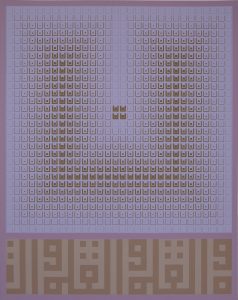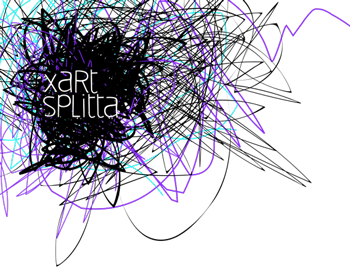
Wednesday, March 7th, 7pm

Islamic Feminisms – Reflections on Intersectionality and Religion
Audio recording: https://soundcloud.com/user-276031808/islamic-feminisms
Book launch and round table with the author Lana Sirri (Maastricht), Amal Abu-Bakare (Aberystwyth) and Dino Suhonic (Maruf, Amsterdam). Moderation: Nahed Samour (Berlin).
In the wake of ever growing anti-Muslim tendencies in Germany and globally we would like to ask how far we need to start including religion more explicitly in our examinations of the intersection of different axes of oppression. How can this be helpful and important for the development of strategies in dealing with manifestations of anti-Muslim racism? How can network building be facilitated by an analysis of these phenomena?
On this evening we would like to bring together different perspectives from Islamic feminists and open a space in which these questions can be examined and discussed in a congenial mindful atmosphere. We are looking forward to welcoming guests from a range of professional and activist backgrounds and warmly invite participants with basic knowledge on theories of intersectionality and Islamic feminisms.
Language: Spoken English
An event by xart splitta in cooperation with w_orten und meer (http://wortenundmeer.net/)
Location: xart splitta, Hasenheide 73, 10967 Berlin. Pls. ring at xart splitta/w_orten und meer.
Flyer as PDF: plakat_islamicfeminisms
About the speakers:
Amal Abu-Bakare is a doctoral student at Aberystwyth University, studying racialisation and counterterrorism in the context of International Relations Theory. She identifies as a Black Muslim Feminist, and is interested in social justice, art, and media projects that address the intersections between race, gender, and religion. Amal frequently writes and comments on the politics of race on Twitter and her blog colouredacademia.
Lana Sirri is Assistant Professor of Gender and Religion at the FASoS, Department of Literature and Art, Maastricht, The Netherlands. She studied sociology at Tel-Aviv University and worked as a coordinator in the Women’s Project of the Arab-Jewish Community Center in Jaffa. Her research interests include: Gender, Queer, Post- and Decolonial theories, as well as theories on Islamic feminisms.
Sirri completed both her MA in Gender Studies and her PhD at the Humboldt University Berlin (HU). Her dissertation entitled “Islam, Gender and Sexuality – Insights into the Interdisciplinary Discourse of Contemporary Muslim Feminists” involves a critical evaluation of Muslim feminist discourses.
Dino Suhonic is director of the Maruf Foundation (http://www.maruf.eu/), a platform from and for Queer muslims in the Netherlands and beyond. Dino Suhonic is also a lecturer, opinion maker and queer activist. They write about queer Muslims, Islam, sexual diversity and gender identity.
Moderation:
Nahed Samour is a law and Islamic scholar and studied in Bonn, Berlin (HU), Birzeit / Ramallah, Damascus, London (SOAS), Harvard and at the Max Planck Institute for European Legal History in Frankfurt / Main. Since 2015, she is Junior Faculty at Harvard Law School, Institute for Global Law and Policy and Post-Doc Researcher at the Eric Castrén Institute of International Law and Human Rights, Helsinki University on “Order and Contestation in Islamic International Law and Relations”. She earned her doctorate at the Humboldt University Berlin, Faculty of Law on “An Islamic Critique of Adjudication”.
About the book:
In her book “Einführung in islamische Feminismen”, Lana Sirri provides an introduction to theory and practice of islamic feminisms: On its ideas, conceptions and approaches; how they are defined and who is defining them; on the role of religion, gender role models, sexuality, and geographic positions in the different islamic feminisms, and on differences and common grounds in and between muslim communities concerning islamic feminism.
Lana Sirri presents different feminist positions and discusses gender- as well as sexuality-sensitive interpretations of the “holy texts”, and interviews German muslim activists on the actual battles and defiances of queer and feminist muslims in Germany.
